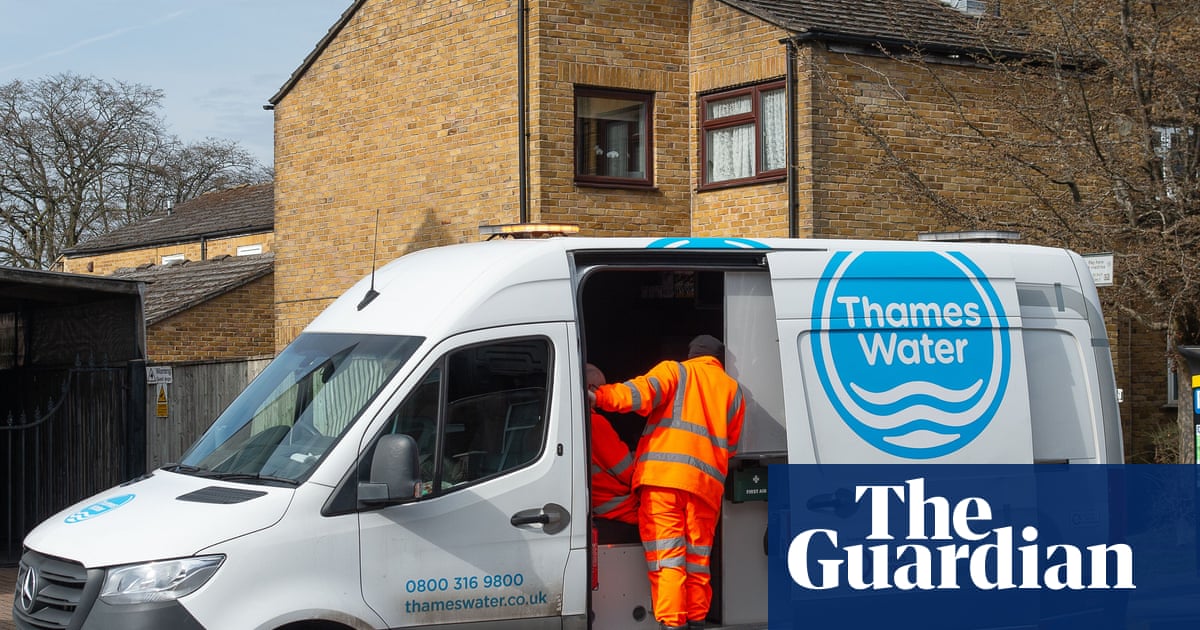Ministers could bring water companies into public ownership for minimal cost through a process designed to safeguard vital public services when the companies running them are failing, a thinktank report has argued.
According tothe reportby Common Wealth, ministers could use a process known as special administration to take over a company like Thames Water and, rather than transfer it to another private company, keep it under permanent public ownership.
Writing for the thinktank, Ewan McGaughey, professor of law at King’s College London, said that while a figure of £99bn was commonly cited as the cost of taking over the industry inEngland, this was based on an estimate from a thinktank paid for by water companies.
According to McGaughey, the estimates use a metric known as regulatory capital value, designed by the industry regulator Ofwat for calculating maximum dividends. This takes the assumed value of companies in 1990 and adds on capital investment per year and inflation but, the report said, takes no account of real market values.
The actual market value of water companies, the report argued, seems to be lower, with theUS private equity company KKRoffering a £4bn injection of equity to take over Thames Water, when its supposed regulatory capital value is nearer £20bn.
It goes on to say that when debt levels of water companies are taken into account, for example Thames Water is about£20bn in debt, it would be possible for the government to argue that their appropriate value in law was notably less, even close to zero.
This would be based not just on debt, but also on the amount of money needed for infrastructure repairs and the scale of dividends already paid to shareholders.
While pollingshows strong public supportfor the general idea of nationalised water suppliers, and the idea is liked by some Labour MPs, government officials say regulatory capital value is the standard measure for the companies’ value, and that nationalisation would need the state to plug the gap left by billions more pounds of private investment that would vanish.
But according to McGaughey, who specialises in corporate law and insolvency, the rules setting out special administration would allow this to be used to remove licences from any water company deemed to show serious poor performance, something he argues in the report could be justified with every English water company over the dumping ofsewage into waterways alone.
Once this was done, shareholders and secured creditors such as bondholders would be given “appropriate value” for their stakes, with McGaughey saying this would, in effect, be nothing.
Sign up toBusiness Today
Get set for the working day – we'll point you to all the business news and analysis you need every morning
after newsletter promotion
While special administration is usually carried out to find a new private owner, McGaughey said there was “nothing in the law to require that the new owner is private”.
He added: “On the contrary, the duty of the special administrator is to the public, and it’s in the public interest to consider public ownership. There would be a case for judicial review if the secretary of state did not consider public ownership.”
Such a move, McGaughey added, would be likely to see bondholders take legal action. However, he said, this happened in the past when Railtrack and Northern Rock were put into special administration without any compensation for investors, and the investors lost. “The government just needs to stop being so timid,” he said.
The Department for Environment, Food and Rural Affairs said: “The government has no plans to nationalise water companies. It will cost billions of pounds and take years to unpick the current ownership model, during which time underinvestment in infrastructure and sewage pollution would only get worse.”
